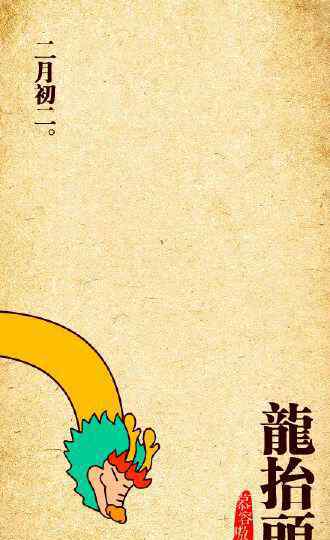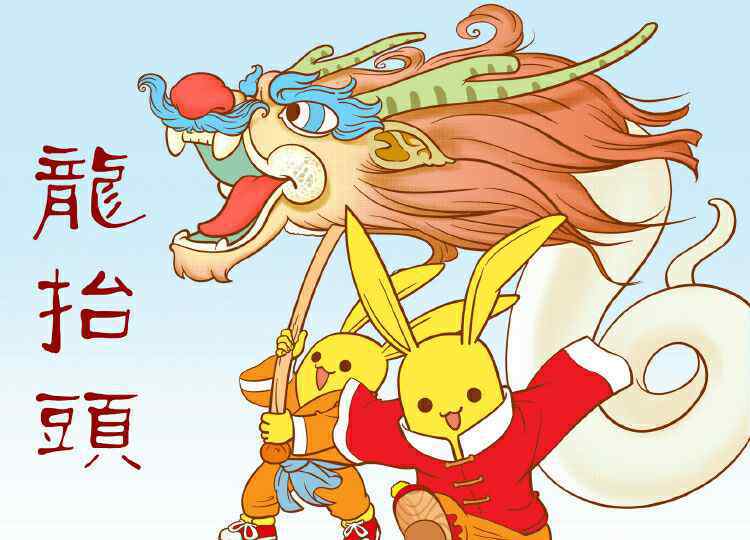The traditional East Asian calendars divide a year into 24 solar terms . Jīngzhé (pīnyīn) is the 3rd solar term. It begins when the Sun reaches the celestial longitude of 345° and ends when it reaches the longitude of 360°. It more often refers in particular to the day when the Sun is exactly at the celestial longitude of 345°. In the Gregorian calendar, it usually begins around March 5 and ends around March 20. 农历中将一年分为24个节气,惊蛰是第三个,通常指太阳位于黄经345度时的那一天,也即差不多在阳历3月5日到3月20日之间。 The word 惊蛰 has the meaning of awakening of hibernated insects. 惊 is startling, and 蛰 is hibernated (insects). The traditional Chinese farming culture said that during Jingzhe, thunderstorms will wake up the hibernated insects, which also means the weather is getting warm. “惊蛰”意为“惊醒冬眠的昆虫”。惊蛰期间,雷雨增多,因此冬眠的虫类会被惊起,这也意味着天气会越来越暖。 It’s also referred to as Longtaitou Festival or Dragon-Head-Raising Festival. In the tradition of Chinese culture, the dragon is believed to be the king of all insects and at same time, it is also believed to be in charge of bringing rains, and both of these are important factors in ancient agricultural society. 惊蛰又被称作“龙抬头”,因为龙一抬头,就会下雨嘛。在农业社会,人们相当看重一年的降雨。 Today, Longtaitou Festival is celebrated in various ways, most of which are still identical to those practiced in the ancient times, including eating Chinese pancakes and noodles. Perfume bags filled with the powder of ground fragrant herbs are made to be carried by women and children for good fortune, though they are no longer used as insect repellent as in ancient times. 今天惊蛰日的庆祝方式多种多样,但是人们仍然保存着像吃春饼和面条这样的传统。妇女和小孩会佩戴香囊,以求好运,虽然今天的香囊已经不再像过去那样,主要是起驱虫的作用。
 到了元朝,二月二就明确是“龙抬头”了。 To the Yuan dynasty , February 2 clearly is the "Dragon rise ." 正月十五的元宵滚进二月二龙抬头的锣鼓声中。 Fifteenth day of the Lantern Festival roller -February 2 -percussion sound of the rise . 二月二农历二月二,俗称“龙抬头”、“春龙节”。 February 2 February Lunar II, known as the "dragon on the rise , " "Chunlong section . 大人小孩还念着:“二月二,龙抬头,大仓满,小仓流。” Adults and children also say : "February 2 , Lung rise , large warehouses full , Kokura flow ." 《析津志》在描述元大都的风俗时提到,“二月二,谓之龙抬头”。 "On-Chi " in the deion of the customs Yuandadu mentioned , "February 2 , that the long rise . 不过,唐宋时的这些“二月二”活动并没有和“龙抬头”联系在一起。 " However , when the Tang and Song dynasties , these "February 2 " and did not "Dragon payable to" link . 谚“二月二,龙抬头”,传说古时候关中地区久旱不雨,玉皇大帝命令东海龙前去播雨。 Proverbs "February 2, Lung rise , " Commissioner legend in ancient times long spell of drought in the region does not rain , the Jade Emperor orders went to the East China Sea dragons sowing rain . 高高跷是当地一门祖辈相传的民间表演艺术,也是农历二月二龙抬头社火中一个传统的保留节目。 High stilts is a local legend , the ancestors of civil performing arts , is the second-long Lunar New Year in February on the rise fire in a traditional society to retain the program .
到了元朝,二月二就明确是“龙抬头”了。 To the Yuan dynasty , February 2 clearly is the "Dragon rise ." 正月十五的元宵滚进二月二龙抬头的锣鼓声中。 Fifteenth day of the Lantern Festival roller -February 2 -percussion sound of the rise . 二月二农历二月二,俗称“龙抬头”、“春龙节”。 February 2 February Lunar II, known as the "dragon on the rise , " "Chunlong section . 大人小孩还念着:“二月二,龙抬头,大仓满,小仓流。” Adults and children also say : "February 2 , Lung rise , large warehouses full , Kokura flow ." 《析津志》在描述元大都的风俗时提到,“二月二,谓之龙抬头”。 "On-Chi " in the deion of the customs Yuandadu mentioned , "February 2 , that the long rise . 不过,唐宋时的这些“二月二”活动并没有和“龙抬头”联系在一起。 " However , when the Tang and Song dynasties , these "February 2 " and did not "Dragon payable to" link . 谚“二月二,龙抬头”,传说古时候关中地区久旱不雨,玉皇大帝命令东海龙前去播雨。 Proverbs "February 2, Lung rise , " Commissioner legend in ancient times long spell of drought in the region does not rain , the Jade Emperor orders went to the East China Sea dragons sowing rain . 高高跷是当地一门祖辈相传的民间表演艺术,也是农历二月二龙抬头社火中一个传统的保留节目。 High stilts is a local legend , the ancestors of civil performing arts , is the second-long Lunar New Year in February on the rise fire in a traditional society to retain the program . 
1.《2月用英语怎么说 二月二“龙抬头”用英语怎么说?》援引自互联网,旨在传递更多网络信息知识,仅代表作者本人观点,与本网站无关,侵删请联系页脚下方联系方式。
2.《2月用英语怎么说 二月二“龙抬头”用英语怎么说?》仅供读者参考,本网站未对该内容进行证实,对其原创性、真实性、完整性、及时性不作任何保证。
3.文章转载时请保留本站内容来源地址,https://www.lu-xu.com/shehui/336846.html